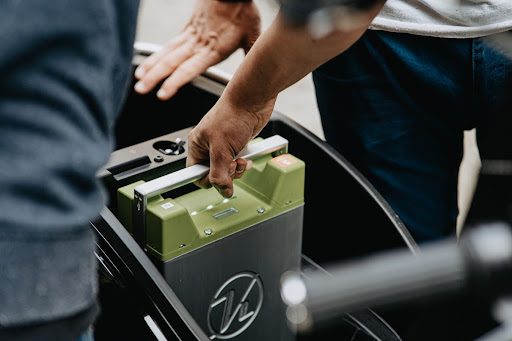The next great arms race is not one of enriched uranium or plutonium. In fact, it isn’t even an arms race, rather it is a race with the singular goal of self-reliance. With the world’s automotive sector clearly trending towards electric vehicles, intense competition has developed between the United States and other superpowers over the raw materials that make up the batteries that power electric vehicles. Of these materials, lithium and cobalt are of chief importance to the western world. This is mainly because these materials are only found in very specific corners of the globe, and the vast majority of areas with an abundance are in the far East. However, there are a few avenues through which America and other allied countries will stand a chance at developing their own supply chain.
By the end of the current century, it is widely expected that batteries will be part of nearly every facet of daily life. It is assumed that at least half of all vehicles sold in the year 2040 will be electric, but the demand for lithium and cobalt will be far from limited to the automotive sector. Another thing to keep in mind is that batteries are used in other things besides cars – smart technologies like refrigerators with LED screens, for example. The assumption is that this concept, known as the Internet of Things – the idea that more and more objects like appliances and furniture are being fitted with smart technologies – will be greatly expanded in the coming decades. Imagine the hypothetical year 2089, where every American has a shirt that takes their temperature or a bathroom mirror that tells them the weather and traffic status, or a chair that detects back problems. All of those products are expected to require batteries, batteries that will still require lithium and cobalt to function.
While the level of American influence over the global battery materials supply chain is currently less significant than comfortable – it is estimated that foreign governments control about 80 percent between nations like China and key mining states like the Democratic Republic of the Congo. However, there is still hope for the United States to change its fortunes for the better. It starts with federal policy change – which is already taking place. In June, the Department of Energy (DoE) announced a national blueprint for building out a robust American battery supply chain. The aim of this blueprint is for the nation to be able to significantly de-emphasize foreign reliance by doing the vast majority of mining, manufacturing, and recycling within America’s borders. If it works, the country will be in a strong position to contend with overseas competitors both economically and environmentally by 2030.
The blueprint mainly focuses on the importance of accelerating existing nationwide mining efforts, along with calling for a mandate that battery manufacturers recycle their old batteries to recover as much lithium as possible. The agency also set a goal of discovering a method of creating batteries without the use of cobalt and nickel by the end of the decade. Along with the DoE announcement, the current administration released a review of the current status of domestic battery supply chains and revealed a new task force specifically for addressing the issue. $100 million in federal funds have been allocated for the purpose of creating apprenticeship programs that will build a workforce capable of filling in the system-wide cracks exposed by the pandemic.
There are also growing international efforts to ensure that global supply chains are being constructed ethically as well as sustainably. Standing strong at 70 members that range from BMW Group to Microsoft and Google, the Global Battery Alliance casts the majority of its focus on expanding the world’s capacity to recycle the 11 million tons of used lithium batteries that are projected to be discarded by 2030. Additionally, the coalition aims to put an end to the reported human rights abuses throughout the supply chain, where children are being put to work in cobalt mines. The combination of increased international pressure and America’s renewed commitment to domestic production gives reason to be optimistic about a future run on batteries.





